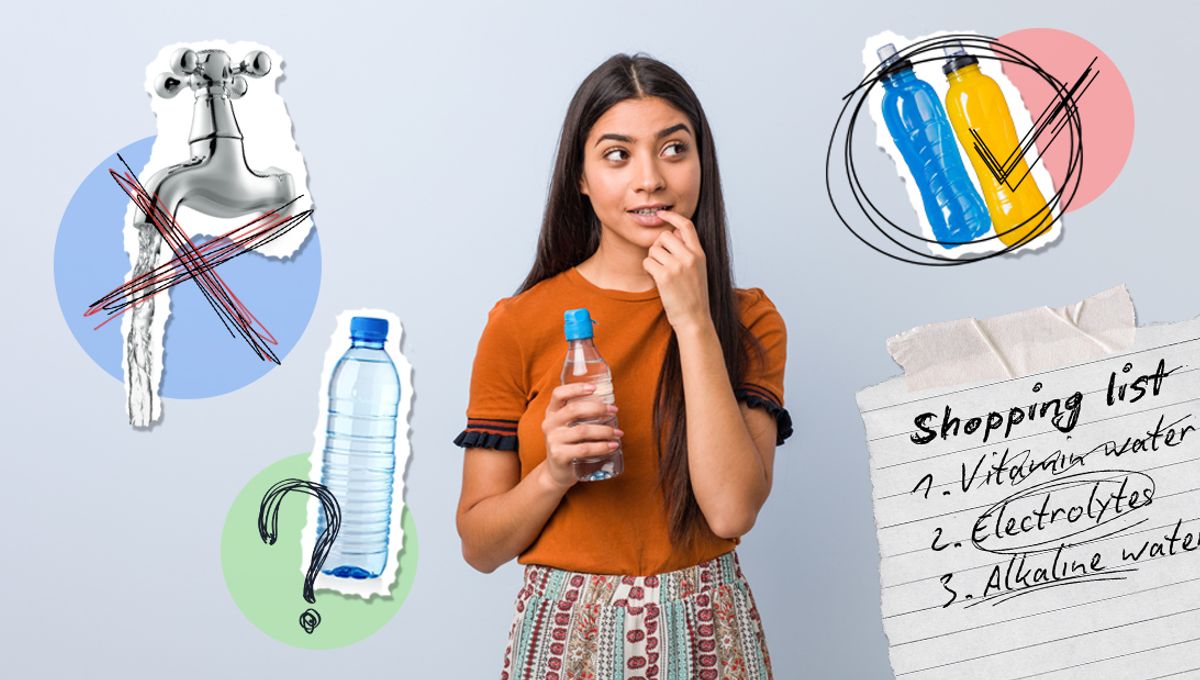
We’re told time and time again about the importance of staying hydrated – which, to be fair, is pretty reasonable considering that we need water to stay alive. But does the type of water that we drink matter?
Of course not – water’s just water, right? Not if you take a wander down the bottled drinks aisle. There you can often find all kinds of water: mineral, vitamin, alkaline, electrolyte. There’s tap water back home, of course, but some corners of the internet will tell you that one of the bottles in the confusing array at the grocery store is far better for you.
Save your pennies – it’s not. “There’s no physiological basis that there’s some metabolic benefit to these specialty waters over just regular, plain old water,” Roger Fielding, professor of biochemical and molecular nutrition at the Gerald J. and Dorothy R. Friedman School of Nutrition Science and Policy at Tufts University, told TuftsNow.
So, what is it about these different types of water that’s led people to perceive one as “better” than the others?
Alkaline water
One draw is the possibility of more effective hydration. For example, it’s often claimed that alkaline water – a type of water with a higher-than-normal pH – is more hydrating than regular water. If you’re someone who’s always forgetting to drink, that would come in pretty handy.
Unfortunately, there doesn’t seem to be any truth to such claims. As of yet, there’s no strong scientific evidence to suggest that alkaline water is any more hydrating than any other type of drinking water, nor is there enough to demonstrate that it has any other significant health benefits. It probably isn’t going to cause any harm for most people either, but it’s not really worth the extra money if tap water does the same job.
Vitamins and minerals
With mineral and vitamin water, the appeal might lie in a quick and easy way to get in these essentials, but the amount isn’t always guaranteed. While the Food and Drug Administration stipulates that mineral water must contain at least 250 parts per million total dissolved solids, beyond that, the amount can vary widely. Tap water can also contain minerals (including fluoride), and again, how much can differ depending on where you live.
If that’s the case, it’s likely best to just drink whatever’s cheapest and do what’s normally recommended for most people to get enough minerals – eat a varied and balanced diet. It’s a similar story for vitamin water; tap water doesn’t have added vitamins, but most people will get what they need through regular ol’ food anyway.
Electrolyte water
A post-workout electrolyte drink might seem like a better choice than tap water after all that sweating, but according to Fielding, it’s “very difficult to induce an electrolyte deficiency”, even if you’re a top athlete.
“The electrolyte concentrations inside our cells, and also in the fluids that are outside our cells, like the blood for example, are very tightly controlled and regulated,” said Fielding. “That’s because they have an impact on how our muscles function, how our kidneys work, and how our hearts sort of beat 72 times every minute. So, increasing the electrolyte concentrations by consuming a beverage is not going to influence the overall electrolyte concentrations in our bodies.”
Stay hydrated
The bottom line? Bottled water with fancy additions isn’t necessarily any better for you than regular tap water – but if that’s what keeps you drinking, it really doesn’t matter.
As Fielding put it: “If you have a preference for a beverage and that’s going to make you drink more and you’ll be more attentive to rehydrating with that beverage, and you have the resources to purchase that beverage, well, have at it.”
All “explainer” articles are confirmed by fact checkers to be correct at time of publishing. Text, images, and links may be edited, removed, or added to at a later date to keep information current.
The content of this article is not intended to be a substitute for professional medical advice, diagnosis, or treatment. Always seek the advice of qualified health providers with questions you may have regarding medical conditions.
Source Link: Is One Type Of Drinking Water Better Than Another?